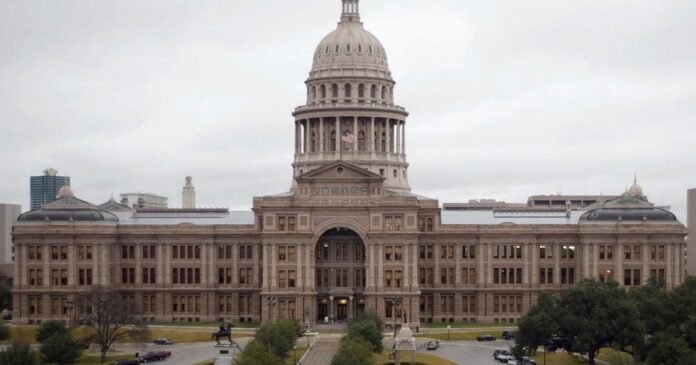Texas lawmakers kicked off the first of several hearings on redistricting Thursday in Austin, with more scheduled for Houston and Arlington in the coming days.
The effort to redraw the congressional boundaries could have major consequences on local, state and national politics.
“All eyes are on Texas right now,” said Michael Li, a redistricting expert at New York University’s Brennan Center for Justice.
How we got here
When Gov. Greg Abbott called this special session, he said the current congressional maps needed to be changed because of constitutional concerns raised by the U.S. Department of Justice.
The DOJ sent a letter to the governor earlier this month, saying four of the state’s Democratic-controlled districts, including District 33 – which covers parents of Tarrant and Dallas counties and is currently represented by Marc Veasey, are illegal because of racial gerrymandering.
However, Democrats believe that’s not the real reason for the unusual mid-decade redistricting effort.
Texas Republicans are facing pressure from President Donald Trump to help maintain the GOP’s control of the U.S House.
“It is very unprecedented that you would have the president of the United States step in in this way and sort of command a redrawing the map,” Li said.
Current maps
Republicans currently have 25 of the 38 congressional seats in Texas. Mr. Trump has said he wants five more ahead of next year’s midterm elections.
The Republican-dominated state legislature finalized the existing maps just four years ago, in 2021, after the release of the 2020 census data.
“It’s very unusual for a party that they got exactly what it wanted in redistricting, go back and redo the maps, potentially to make them better for them, but also potentially creating a lot of risk that it backfires on them,” said Li.
He believes what Texas Republicans are doing is a “brazen power play” that will lead to a legal fight.
“It’s very hard to get more Republican seats in Texas without aggressively targeting the power of communities of color who last year provided 100% of the growth, and about 98% of the growth since the 2020 census,” said Li.
Concern in North Texas
The president and CEO of the Dallas Black Chamber of Commerce, Harrison Blair, has been fielding calls from business owners who are worried about the consequences of redistricting.
“They’re telling me right now they don’t want to be redistricted,” Blaid said. “It would be like driving a new freeway or a train track through the middle of an existing community. It harms the businesses. It harms our ability to have a voice.”
Blair is encouraging members to send letters, attend the public hearings on this issue, or call their state lawmakers.
“Texas marches to the beat of its own drum,” said Blair. “But right now it seems like the president is running what’s happening in Texas in this special session out of DC. So it’s disconcerting to say the least.”
State lawmakers haven’t release any proposed maps yet, so it’s not clear which districts could be impacted.
“The problem is when you’re redrawing the lines in one place, it’s very hard to do so without affecting surrounding communities,” said Veronikah Warms, the voting rights policy attorney at the Texas Civil Rights Project. “It can have a ripple effect that goes out through the entire state.”
In this case, it could change who represents you in Congress and what policies they advocate for.
“So I would encourage you, to tell lawmakers about it,” Warms said. “Tell them not to put you in with a community that does not have the same interests and priorities and values that you do because otherwise your representation in crafting federal law is going to be not what it should be. It won’t be fair.”
Upcoming hearings
Saturday, July 26 in Houston
- 11 a.m.
- University of Houston – Main Campus
Monday, July 28 in Arlington
- 5 p.m.
- University of Texas at Arlington
All testimony in person will be limited to two minutes per witness, and the duration of the public testimony portion of hearing will be limited to five hours.
Texas residents who wish to electronically submit comments related to congressional redistricting without testifying in person can do so until the hearing is adjourned by clicking here.






